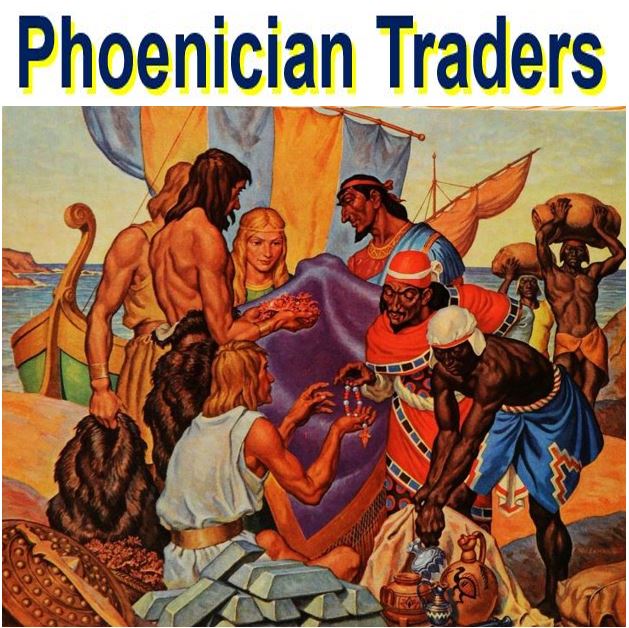Trade as a noun can refer to the action of buying/selling or exchanging goods and services between people, companies, countries, and other entities. The term is often synonymous with ‘commerce.’ It may also refer to a particular industry as in the building, tourist or fur trades.
People, companies, and countries that buy and sell goods and services are traders.
Job or skill
The term can mean a job or skill, especially one that involves working with one’s hands. Examples include carpentry, plumbing, and mechanics.
Traditionally, tradesmen were people with these skills. Rich homes, hotels, and business premises used to have a ‘tradesman’s entrance.’
People who work in trades are those employed in a particular industry or business, as in “That warehouse only sells its goods to the building trade, never directly to the public.”
Trade skills often require specialized training and certifications, underscoring the importance of vocational education in various economies. Such credentials ensure that the individuals practicing these trades meet industry standards and are capable of delivering quality workmanship.
The verb
As a verb, ‘to trade’ means to purchase and sell goods and services, either at individual, commercial or nation-to-nation levels.
We have been trading since prehistoric times – hundreds of thousands of years ago. We used to barter goods and services from each other before currencies existed.
Suppliers and buyers
When we trade, the good or service comes from the supplier and goes to the buyer.
When talking about shares in a stock exchange, i.e. , the verb is commonly used, as in “a high volume of stocks were traded today in the New York Stock Exchange.’
As a verb, the term may also refer to exchanging or bartering items, as in “When I was at school I used to trade my cheese sandwiches for chocolates.”
When people are talking they can trade stories, i.e., relate stories, or trade insults, i.e., insult each other verbally.
As an adjective, it can mean ‘for those specialized in a particular business or industry.’ For example, the (fictitious) publication ‘International Waiters Today’ is a trade journal – it is just for waiters and waitresses.

Why does trade exist?
The exchange of goods and services emerged when humans started specializing – when the division of labor came onto the scene, the buying and selling of goods and services between people grew rapidly.
Trading exists between geographical regions because of the comparative advantage in the production of tradable commodities.
For example, bananas that are produced in the tropics are sold to people who live in colder regions of the world.
In those colder regions, other products are produced more efficiently and at better prices – such as cars and computers – and are sold to people who live in the tropics.
Consumers benefit
Trade has become a common method of allowing the citizens of most countries across the world to get the products and services they need.
Argentina, for example, sells wheat to Japan and imports computers, cars and other goods from Japanese companies.
Trading may also exist between nations because their governments and people believe in a free market – healthy competition. So, even though both nations may produce similar goods and services, they still allow the free international movement of goods and services – they encourage international trade.

International trade
International trade consists of the buying and selling of goods and services between nations – imports and exports. When a country imports more than it exports it is said to have a deficit. When exports are greater than imports, it has a surplus.
Countries engage in trade so that they can sell the surplus of things they produce. They also need to gain access to things they either don’t have or cannot produce enough of. This allows for a balance of a wide range of products and services rather than a surplus of just a few limited items.
Definition of free trade?
Free trade is a policy that some international markets and governments follow in which there are no restrictions on imports from, or exports to, other countries or economic blocs.
The North American Free Trade Agreement (NAFTA) and the European Economic Area (EEA) are examples of regions where free trade between countries exists. NAFTA comprises the USA, Canada, and Mexico, while the EEA includes all the European Member states plus Norway, Iceland, and Liechtenstein.
Nearly all the countries in the world – except for North Korea, Monaco, South Sudan, Somalia and some others – are members of the World Trade Organization (WTO), which has several multilateral agreements.

Trade restrictions
However, the majority of governments still impose tariffs and quotas on imports. They also apply subsidies to exports, aimed at supporting local businesses and jobs. Some governments restrict the exports of certain natural resources.
While restricting trade to protect local companies and jobs may seem a wise move, in the majority of cases the results are not good for that nation’s economy.
Protectionism has invariably resulted in a decline in the creation of wealth, greater long-term unemployment, poorer quality, higher taxes and consumer dissatisfaction.
Venezuela
Venezuela has the world’s largest oil reserves. It should be among the richest countries in the world. Since the turn of the century, its leaders have pursued a policy of protectionism and nationalization.
Their policies have left the country today in a tragic economic mess. Basic foods and household items are rarely available in the shops, power cuts are an everyday occurrence. Unemployment is rising rapidly, and social unrest is becoming a serious problem.
Advanced economies are great traders
The richest countries in the world are also the greatest international traders, while the most protectionist are among the poorest.
North Korea, Venezuela, Zimbabwe, and Somalia have incomes per capita (per head of the population) vastly inferior to those of the USA, Canada, Australia, Japan, South Korea and the nations of Western Europe – all of them established trading nations.

What is fair trade?
The ‘fair trade’ or ‘trade justice’ movement promotes the use of reasonable labor, environmental and social standards for the production of goods and commodities. The movement focuses on goods that originate from poorer markets and end up in the advanced economies.
The aim is to eradicate the exploitation of poor people. Subsequently, consumers in the advanced economies can get the best prices for their products. Some people believe that trade itself should be codified as a human right.
Compliance with fair trade standards is either something that importers adopt voluntarily or governments enforce through legislation.
Slave labor
Virtually all governments prohibit the importation of goods made using slave labor. In the 1980s, minimum price support schemes emerged, starting off in the coffee industry.
The Fairtrade Foundation makes the following comment on its website:
“With Fairtrade you have the power to change the world every day. With simple shopping choices you can get farmers a better deal. And that means they can make their own decisions, control their futures and lead the dignified life everyone deserves.”
Visible trade refers to importing/exporting goods, physical or tangible things, things we can see and touch. Invisible trade refers to trading in services. Services are things, such as consultancy, that we cannot handle our touch.
An autarky is a country that is not interesting in trading – it does not import or export goods and services.
Derivatives of the word “trade”
The word “trade” has many derivatives. Let’s have a look at them, their meanings, and how we can use them in a sentence:
Trade (Noun)
The action of buying and selling goods and services.
Example: “International trade has significantly influenced the global economy.”
Trade (Verb)
To buy and sell goods and services.
Example: “She trades in luxury goods from around the world.”
Trader (Noun)
A person who trades; a merchant or businessperson.
Example: “The trader made a fortune in the stock market.”
Trading (Noun)
The act or process of buying, selling, or exchanging commodities.
Example: “Trading on the stock exchange can be highly volatile.”
Trading (Adjective)
Relating to or used for buying, selling, or exchanging.
Example: “He works on the trading floor of a major bank.”
Tradable (Adjective)
Capable of being traded.
Example: “Gold is considered a highly tradable commodity.”
Tradeable (Adjective)
Another form of ‘tradable’.
Example: “Many countries have tradeable carbon credits.”
Trade-off (Noun)
A balance achieved between two desirable but incompatible features.
Example: “There is often a trade-off between quality and cost.”
Tradesman (Noun)
A worker skilled in a particular craft or trade.
Example: “The carpenter, a skilled tradesman, crafted beautiful furniture.”
Tradeswoman (Noun)
A female worker skilled in a particular craft or trade.
Example: “The tradeswoman expertly repaired the plumbing issues.”
Trade-in (Noun)
An act of exchanging something part of the payment for something new.
Example: “He got a good deal on his car with the trade-in.”
Traded (Verb – Past Tense)
The past form of the verb trade.
Example: “She traded her old smartphone for a newer model last year.”
Traditionally (Adverb)
In a way that is typical of the customs or styles of the past.
Example: “The festival is traditionally celebrated with a parade.”
Traderly (Adjective)
Resembling or characteristic of traders (less common usage).
Example: “His traderly instincts were sharp in the bustling marketplace.”
Tradingly (Adverb)
In a manner pertaining to trading (rare usage).
Example: “The company focused tradingly on foreign markets.”
